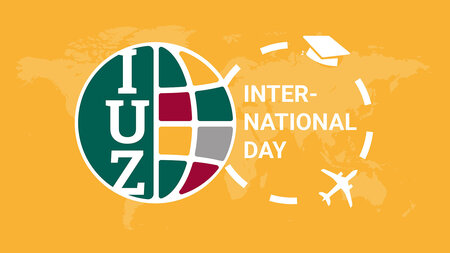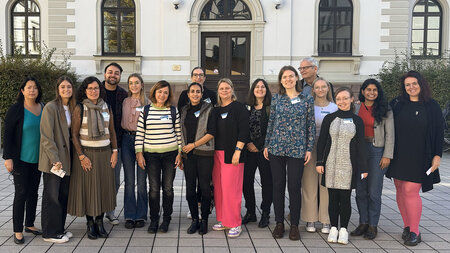Better Climbing with a Virtual Mentor
Team of the KliMB research project on automated motion analysis in bouldering, funded by the Federal Ministry for Economic Affairs and Climate Action, presented results
-

The video-based and automated motion analysis developed as part of the KliMB project helps -

The KliMB team will present its results at the Innovation Day for SMEs of the Federal Ministry for Economic Affairs and Climate Action on June 23, 2022. Logo: BMWK
In addition to the sporting challenge, bouldering also offers research incentives - for example in optimizing one's own movements. A solution for automated motion analysis has been developed by a research team from the Professorship of Circuit and System Design (Head: Prof. Dr.-Ing. Ulrich Heinkel) at Chemnitz University of Technology under the scientific direction of Dr. Julia Richter. The collaborative project "Climbing with virtual mentor through video-based motion analysis" (KliMB) was funded from October 2019 to August 2021 with about 163,000 euros by the Federal Ministry for Economic Affairs and Climate Action (BMWK). The funding took place as part of the Central Innovation Program for SMEs (ZIM). The project partner is Blocz GmbH from Chemnitz. The company produces, among other things, grips as well as complete walls for bouldering sports.
In order to present their findings to a broader public, the KliMB research team will present their results at the Innovation Day for SMEs on June 23, 2022, starting at 10 a.m., in Berlin (Tschaikowskistraße 49) at the invitation of the BMWK. Participation in the event is free of charge.
Learn climbing techniques earlier - avoid initial mistakes
The goal of the KliMB project was to explore the use of video-based, automated motion analysis in bouldering and to establish it in the sport of bouldering. The result is the so-called "Virtual Mentor". For this purpose, project member Raul B. Beltrán developed a method for motion analysis as well as a suitable form of user feedback based on it: "Developing a feedback system for bouldering is an exciting task. Beginners in particular can use the so-called 'Virtual Mentor' to learn correct climbing techniques and avoid mistakes at an early stage," explains Julia Richter.
The virtual mentor relies on cameras that can capture movements in the form of so-called point clouds and skeleton points. The captured data is then analyzed by algorithms so that users of the system receive helpful hints during bouldering via visual feedback.
The virtual mentor was developed in the Boulderlounge Chemnitz and in the professorship's own climbing lab. "For the further development of the virtual mentor, we are always looking for students who are enthusiastic about climbing and technology and who, for example, want to work on exciting topics as part of their final theses," Richter makes clear.
The project was supported by Dr. Guido Köstermeyer, World Cup winner in climbing in 1992, first ascentist of numerous routes in the tenth and eleventh degree of difficulty and sports scientist with a focus on training theory. Also involved in the project was physiotherapist Moritz Neubauer, who looks after the athletes of the national sports climbing squad at international competitions, training camps and home training.
Background: Innovation Day for SMEs of the BMWK 2022
On June 23, 2022, the Innovation Day for SMEs of the BMWK will take place with more than 200 exhibitors from Germany. The Innovation Day thus serves as a showcase for SME innovation activity at the federal level and as a communication platform for innovative SMEs. Under the motto "Change through Innovation", the event also presents BMWK funding initiatives and programs and their close interlinking from the idea to market success.
For further information on the project and student work, please contact Dr. Julia Richter, Chair of Circuit and System Design, tel. +49 (0)371/531-37933, e-mail julia.richter@etit.tu-chemnitz.de.
(Source: Project KliMB / Translation: Brent Benofsky)
Matthias Fejes
02.08.2022





